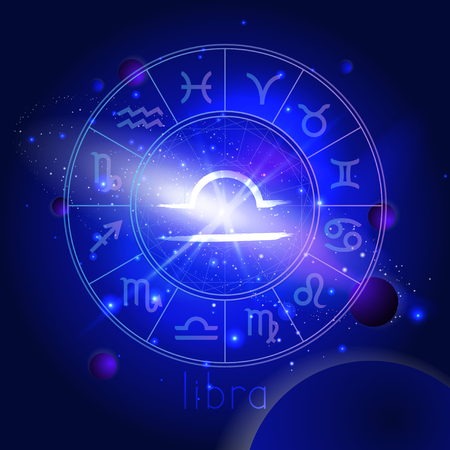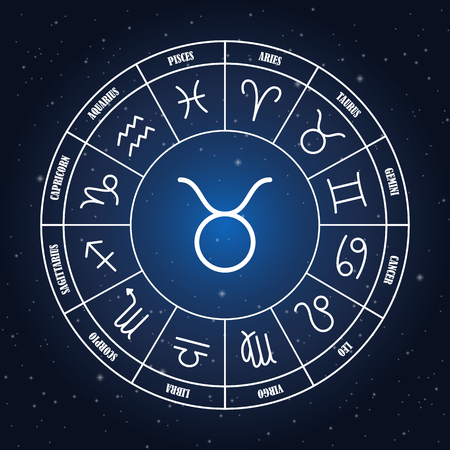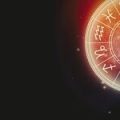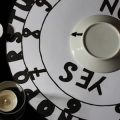Astrology and the Origins of the Monarchy
From the earliest chapters of British history, astrology has quietly influenced the monarchy, weaving itself into both the fabric of royal identity and the narrative of legitimacy. In medieval Britain, celestial events such as eclipses or striking planetary alignments were viewed not merely as natural phenomena but as divine messages—signs that could anoint a ruler’s destiny or foreshadow shifts in power. Monarchs and their advisers often looked skyward for reassurance, seeking cosmic approval for their rule in a world where birthright alone was rarely enough to secure the throne.
The symbolism of the stars was ever-present in royal rituals and public spectacle. Coronations were frequently timed to coincide with auspicious astrological moments, imbuing these ceremonies with a sense of fate fulfilled. This celestial guidance did not just offer comfort; it shaped the very language and iconography of monarchy, from the Lion and Unicorn on royal crests echoing constellations, to banners fluttering under “favourable” stars. Such cosmic connections provided not only a spiritual shield but also a subtle political tool, lending an air of inevitability to dynastic succession and reinforcing a monarch’s claim in the eyes of subjects.
These beliefs, though sometimes shrouded in myth, reflected a deep-rooted desire among royals to align themselves with forces greater than any earthly rival. In this way, astrology became part of the monarchy’s enduring mystique—a quiet whisper from the heavens suggesting that rulers were chosen not just by blood, but by destiny itself.
2. Royal Astrologers: Advisers in the Shadows
Step softly into the candle-lit chambers of British history and you’ll find astrologers quietly shaping destinies at the heart of royal power. These enigmatic advisers, often kept from the public eye, played a pivotal role in guiding monarchs—sometimes with whispered warnings, other times with bold predictions scrawled upon parchment. Their influence stretched from Queen Elizabeth I’s glittering court to echoes within more modern reigns, blending celestial insight with political acumen. Let us explore how these figures were trusted confidants for rulers standing at the crossroads of fate and duty.
The Rise of Court Astrologers
Astrology’s golden age in Britain truly blossomed during the Tudor period. Monarchs such as Elizabeth I sought counsel from luminaries like John Dee, who was not only an astrologer but also a mathematician and advisor on all things arcane. In a world where omens and portents held sway over the hearts of even the most rational, astrologers provided reassurance—and sometimes justification—for decisions that would shape both policy and personal affairs.
Influence on Public and Private Decisions
| Monarch | Astrologer | Key Influence |
|---|---|---|
| Elizabeth I | John Dee | Electional astrology used to choose coronation dates and auspicious times for statecraft |
| Charles II | William Lilly | Predictions regarding civil unrest; guidance during turbulent Restoration years |
| George III | Sophia Mason (unofficial) | Counsel on health and familial matters through natal charts |
This clandestine counsel wasn’t limited to state occasions. Astrologers were frequently invited to cast horoscopes for royal births, marriages, or even military campaigns—each calculation tinged with hope or caution. The trust placed in these advisers speaks volumes about the entwined nature of cosmic belief and regal responsibility in British culture.
A Modern Legacy?
While today’s monarchy might not consult astrologers before every key event, echoes of this tradition persist in popular fascination with royal birth charts and media speculation around significant dates. The stars, it seems, still hold a gentle allure over Britain’s royal story—reminding us that even amidst pomp and protocol, there is space for wonder and cosmic curiosity.

3. Celestial Symbols in Royal Ceremonies
The grandeur of British royal life has always been woven with subtle threads of astrology, echoing through the ages in coronations, weddings, and time-honoured traditions. The selection of dates for pivotal events—be it a monarch’s crowning or a royal marriage—has often been influenced by favourable astrological alignments, reflecting a quiet reverence for celestial wisdom. In the United Kingdom, where pageantry meets ancient superstition, the timing of these ceremonies is rarely left to chance.
Consider the regal coronation: beneath the vaulted ceilings of Westminster Abbey, symbols such as stars and suns are not mere embellishments but nods to cosmic order and divine right. Historical records whisper that royal astrologers were sometimes consulted to determine auspicious moments for ascending the throne, ensuring the heavens smiled upon each new reign. This gentle dance with destiny lingers in the careful planning of royal occasions today, where tradition and celestial timing harmonise.
Royal weddings, too, have their share of starlit influence. While modern audiences may see only romance and splendour, astrological considerations quietly shape these unions. The choice of wedding dates frequently coincides with positive planetary aspects, believed to bless couples with harmony and prosperity—a custom rooted in centuries-old British belief that love and fate are written in the stars.
Beyond grand events, everyday rituals within royal households also reflect astrological motifs. From zodiac-inspired jewellery worn by monarchs to motifs hidden within palatial décor, these celestial symbols serve as gentle reminders of the unseen forces guiding Britain’s first family. It’s a testament to how astrology continues to weave magic into even the most time-honoured royal traditions.
4. Public Perceptions: Myths and Misunderstandings
Astrology’s connection with the British Royal Family has long been a topic that stirs both curiosity and scepticism among the public. Over the centuries, the notion that stars and planets might influence royal destinies has woven itself into the tapestry of British folklore, giving rise to an intriguing blend of speculation, rumour, and myth. Let us gently explore how these perceptions have evolved, and why astrology continues to hold such fascination in the collective imagination.
The Birth of Royal Myths
Historically, any hint of astrological counsel within palace walls has quickly made its way into popular discourse. From whispers about Queen Elizabeth I’s reliance on John Dee, her famed astrologer, to rumours swirling around more modern royals seeking guidance from the stars, these stories have captured the hearts of many. Such tales are often embroidered with layers of imagination and hope, reflecting a deeper yearning for meaning during times of national uncertainty or transition.
Common Myths vs Reality
| Popular Myth | The Reality |
|---|---|
| The Queen always consults an astrologer before major decisions. | No documented evidence supports this; most decisions are based on tradition and counsel from appointed advisers. |
| Certain royal births are timed according to favourable planetary alignments. | While some historical monarchs showed interest in auspicious timings, modern royal births typically follow medical advice. |
| Astrological charts determine who marries into the family. | Marriage choices may be influenced by family expectations and tradition but not by official astrological readings. |
A Gentle Curiosity Persists
This gentle intrigue is not without its charm. Even today, tabloids and social media chatter erupt whenever a new royal engagement or birth is announced—astrologers are swiftly called upon to interpret celestial omens. Many Brits view these predictions with a twinkle in their eye; for some, it is light-hearted entertainment, while for others, it offers comfort in tradition and continuity. In this way, astrology’s place in royal life—real or imagined—continues to spark imagination across generations, bridging ancient beliefs with modern curiosity.
5. Modern Monarchy: Astrology in Contemporary Royal Culture
In today’s Britain, astrology finds itself woven into the fabric of royal culture in ways that are both subtle and delightfully playful. While the days of court astrologers whispering predictions to monarchs may be largely consigned to history, fascination with star signs endures—especially when it comes to the modern royals. The British public, ever enchanted by both tradition and a hint of whimsy, often turns its gaze skyward to ponder how planetary alignments might influence the personalities and fortunes of those who dwell in palaces.
The Media’s Playful Speculation
It’s not uncommon to spot headlines speculating whether Prince William’s Cancerian empathy is behind his gentle leadership style, or if Meghan Markle’s Leo sun sign contributes to her charismatic public presence. Tabloids and glossy magazines alike indulge in astrological musings, particularly around royal birthdays, weddings, and new arrivals. These narratives provide a light-hearted yet strangely comforting lens through which the British public can relate to their royals—as if knowing the Queen was a steadfast Taurus makes her seem just a touch more familiar.
Royal Horoscopes: A National Pastime
The UK’s enduring love affair with horoscopes feeds seamlessly into royal reporting. From radio chatter to Twitter threads, amateur astrologers speculate on how Mercury retrograde might affect official engagements or interpret eclipses as omens for palace intrigue. This gentle obsession doesn’t claim true predictive power; rather, it adds layers of meaning and fun to stories about people whose lives often feel far removed from everyday experience.
Astrology as Soft Insight
Perhaps what makes astrology so appealing in contemporary royal culture is its capacity for soft insight—a kind of emotional decoding that bridges the gap between “us” and “them.” By pondering the birth charts of princes and duchesses, Britons find ways to imagine the inner lives behind regal facades. It’s a form of storytelling that brings warmth and relatability, allowing even the most traditional institutions to feel touched by something as universal as the stars.
Ultimately, while astrology may no longer guide decisions in the corridors of Buckingham Palace, it continues to shape how Britain sees its monarchy—offering playful speculation, gentle comfort, and a shared language of curiosity that links palace gates with everyday doorsteps.


